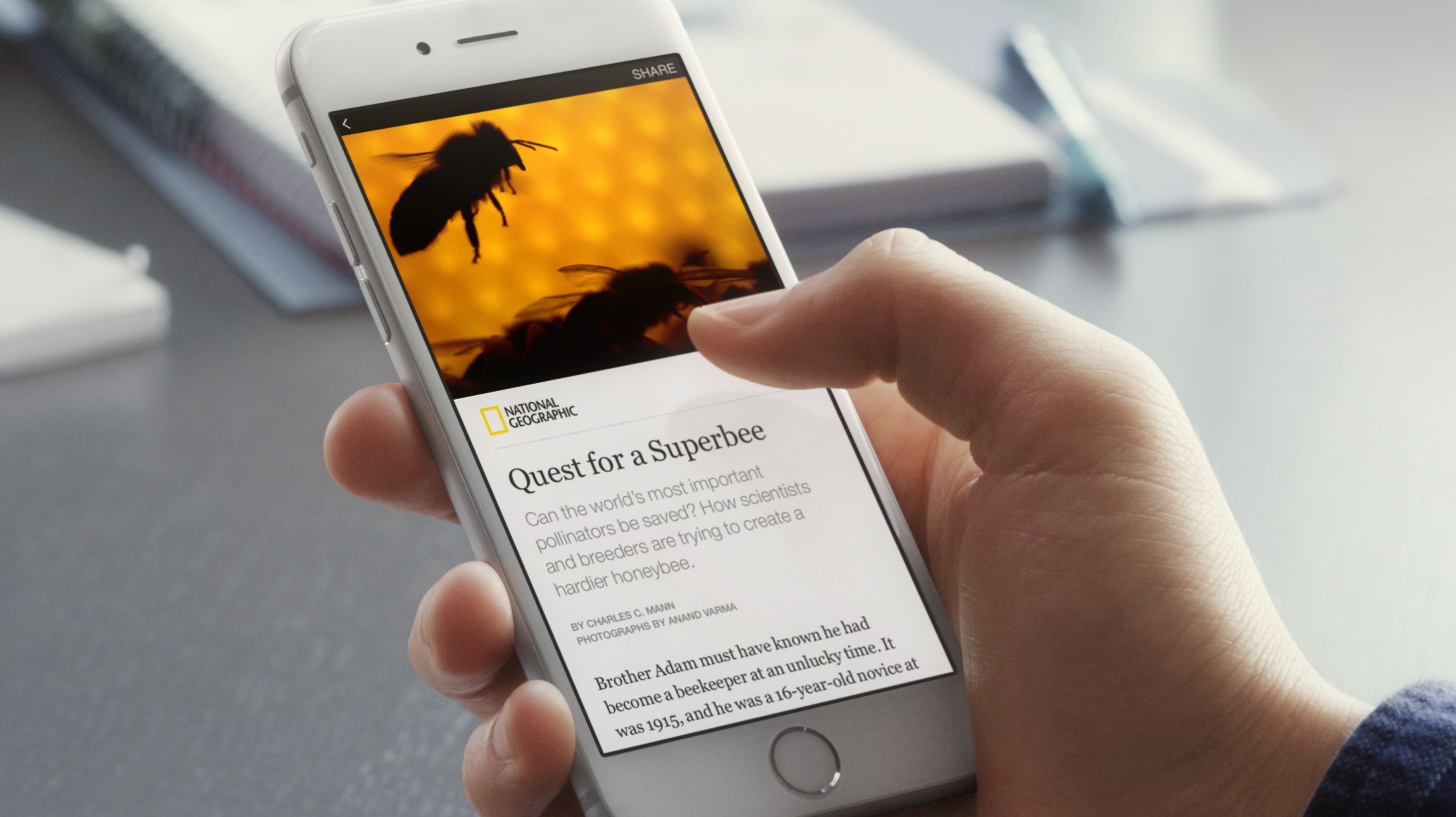In a world where brands and even publications can afford to no longer focus on where the user consumes their content, but rather on how engaging their content is, Facebook Instant Articles comes just on time. Recently, Facebook launched a new service called Instant Articles, which allows publishers to create content that stays native to the social media platform, rather than requiring users to click through to the content publisher’s website.
Through Instant Articles, the publishers will be able to recreate their newspaper´s visual identity, with custom fonts, layouts and formats. Besides this, Facebook is also providing vivid media options such as embedding zoomable photos, videos, tweets, maps with audio captions and contextual “Ambient Videos”. Justin Osofsky, the company’s VP of Global Operations and Media Partnerships, says that publishers “can have the same tools that an app developer has. They’re not stuck with what the mobile web can offer.” Moreover, Google Analytics, Omniture, and other tracking tools will work just like on a publisher’s websites, recording standard data on who is looking at what articles and the media inside them.
Facebook´s main goal is improving the News Feed experience so people stay longer and see the highly-lucrative ads it already shows, not to steal ad impressions from publishers. Therefore, publishers will retain control of what ads they chose to show inside the Instant Articles. If they sell them, publishers will keep 100% of the revenue, while if Facebook sells the ads through its FAN mobile ad network, will keep its standard 30% and give 70% to the publisher.
Yet, the Instant Articles will not receive preferential treatment from Facebook´s News Feed sorting algorithm, unless the users click, like, comment, and share Instant Articles more often than the other articles. In this case, they might show up higher and more frequently in feed like any piece of popular content. That could incentivize, or implicitly force, more publishers to adapt to the new hosted format. Still, once joining the new platform, publishers aren’t bound to use the product. Partners can publish as many or as few Instant Articles as they want, and display and promote those same articles elsewhere however they want. There is no exclusivity.
Furthermore, the fact that Facebook launched Instant Articles with nine “alpha partner” companies (The New York Times, National Geographic, BuzzFeed, NBC News, The Atlantic, The Guardian, BBC News, Spiegel Online and Bild) is not to be underestimated. As for the future, Facebook plans to use the feedback from the first publishers to make improvements and updates and then to slowly, but gradually bring on new partners in the following months.




